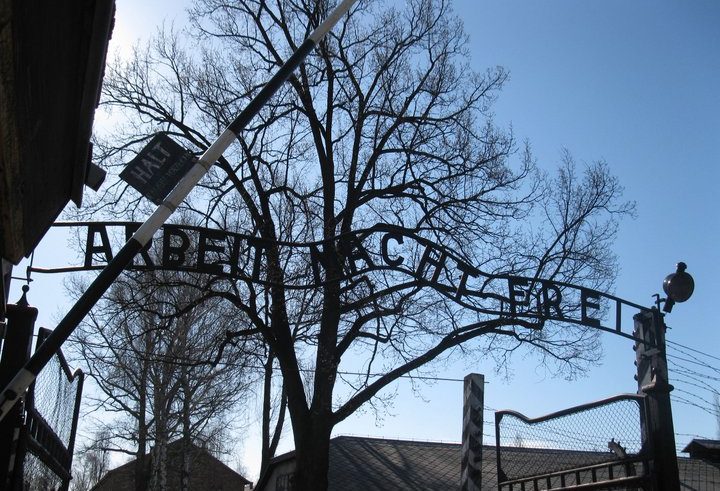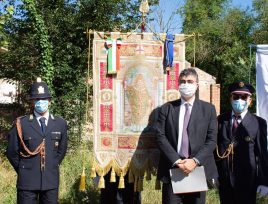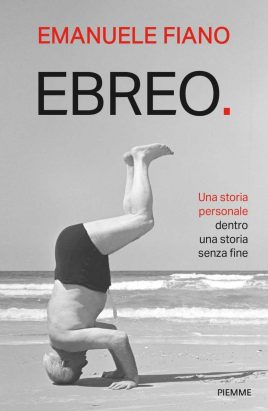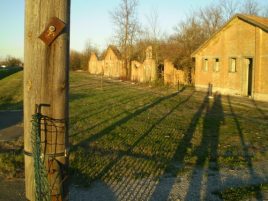
“What does it mean to be Jewish? Is it religious faithfulness? Or does it involve being part of a tradition or a specific history?” These and other questions form the background to “Ebreo. Una storia personale dentro una storia senza fine“, the new book by Emanuele Fiano, president emeritus of the Jewish Community of Milan, son of Holocaust survivor Nedo Fiano. The book was presented yesterday in Carpi in the framework of the initiatives promoted by the “Fossoli Foundation” to mark Holocaust Remembrance Day.
 How would you describe your book?
How would you describe your book?
It is not an essay on Judaism. It can be described as a personal and cultural formation roadmap on the meaning of Jewish identity today. I do not attempt to prove one thesis or refute another; nor will you find therein a profession of faith, or atheism. And it is not an attempt to argue the primacy of one thought, belief or tradition, over another. Over and above rites of passage, what does it mean to be Jewish today? Is there only one answer? Drawing on personal experiences, moments of formation and difficulties, I try to answer these questions guiding the reader all the way from Judaism’s innermost roots to more personal frontiers.
“Jew”, reads the title. What does it mean to you to be Jewish today?
To me, being Jewish is a personal identity that at the same time is a ‘duty’ towards history and humanity. This identity is about being responsible for oneself and for all our fellow others inhabiting our world.
You are an Italian of Jewish origin: how do the two realities coexist?
A person’s identity is multifaceted. My family is Italian, and my family tree has roots in Italy that date back a couple of thousands of years. Our roots are Italian, which is consistent with having also other cultural roots.”
 With reference to anti-Semitism, what is the situation in our country?
With reference to anti-Semitism, what is the situation in our country?
Unfortunately anti-Semitism is on the rise, and not only in Italy. It is even worse in France, and is widespread in America, in the Arab countries. I have found that in Western societies, in Italy for example, anti-Semitism escalates when there are socio-economic hardships, when people are in distress and they are looking for a scapegoat to blame it on. Take for example the “hunting for Jews” during the two dictatorships. Today, other social groups are singled out as targets of hatred.
In your opinion, what are the reasons?
People are angered by their circumstances, this anger eventually transforms into frustration, which in turn becomes fear, hopelessness in the future. Throughout the history of the western world of the past two hundred years, these individuals have consistently sought in other peoples the reason for their plight – which depends on historical circumstances or other reasons. Take the pandemic today, for example. People were sick, they were afraid, there were no short-term solutions. So rumours began to spread of a conspiracy, even one originating from the Jews. Moreover, during the financial crisis of the past legislature, a heated debate sparked off after a Senator from the Five Star Movement (M5S) after a tweet in which he shared an article referring to the ‘Protocols of the Elders of Zion’ (a renowned fabricated text created by the tsarist police on which much of contemporary anti-Jewish rhetoric stems from, Ed.’s note). When supporters of former President Donald Trump stormed the US Congress in January 2021, some of them were wearing T-shirts with anti-Semitic texts, such as ‘Auschwitz Camp’ or ‘Six million is not enough’. Such attitudes occur frequently in times of crisis, when there are no certainties for the future or even explanations, so people turn to old paradigms/beliefs/legends or, as we would say today, fake news. This applies not only to Jews, but also to blacks, homosexuals. History repeats itself. However, I want to be optimistic, we are building up ‘antibodies’ for that.
 January 27 marks Holocaust Remembrance Day. In your view, does this recurrence have real significance or is there a risk of it being turned into ritualistic events devoid of content?
January 27 marks Holocaust Remembrance Day. In your view, does this recurrence have real significance or is there a risk of it being turned into ritualistic events devoid of content?
I personally appreciate what is done and I am glad to give my personal contribution in meetings with school students. Then it obviously depends: if the whole process is hushed up, then it serves no purpose. If instead memory is authentically passed on, the younger generations are provided with tools, young people can draw a lesson from history for their future, namely how racial prejudice originated, why defending democracy is so important.
 You have visited the former concentration camp of Fossoli on several occasions: what were your feelings as you walked in that site?
You have visited the former concentration camp of Fossoli on several occasions: what were your feelings as you walked in that site?
It felt as is it were a room in my family’s house. In fact for eleven members of my family, that camp was the last ‘home’. My father, Nedo Fiano (who died in December 2020 at the age of 95, Ed.s note) was in Florence, he was arrested on February 6, 1944. He was 18 years old. From there he was transferred to the Fossoli transit camp, with eleven other members of his family and then to Auschwitz, where he arrived on May 16, 1944. He was the only survivor. The escaping Nazis transferred him to Buchenwald, where the Americans arrived on April 11, 1945.
Returning to your book, why did you choose the iconic image of David Ben Gurion, one of the founders of the State of Israel, standing upside down on an Israeli beach?
It is not enough to be Jewish, if you don’t conceive your Jewishness as a project, at the cost of progressing standing upside down, as something that draws its strength from the roots of your historical background, from tradition, and that, regardless of your innermost conviction, guides you towards your responsibility in the world.
(*) weekly “News” (Carpi)












